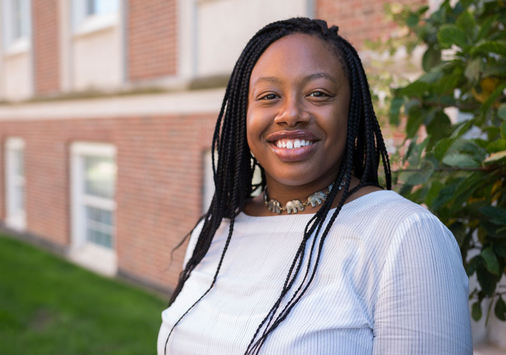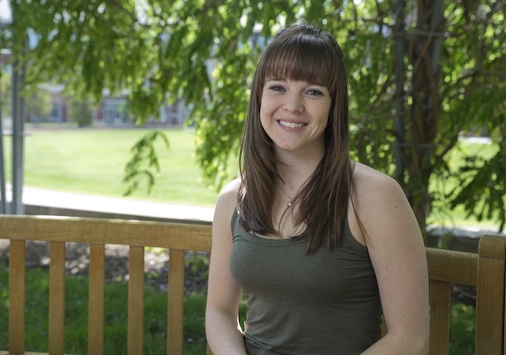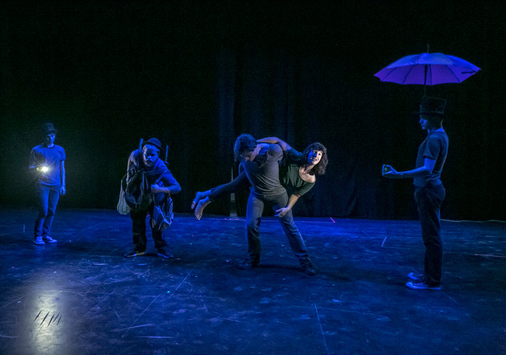Degree Requirements
Information presented from the 2024 - 2025 Academic Catalog.
Modern Languages Mission Statement
Educated people spend their lives pursuing growth in political, social and intellectual freedom. One kind of intellectual freedom requires us to break away from the notion that our native language is the most natural and apt means of expressing the full range of human experience. An education can start with the realization that all words are purely conventional devices. They are nonetheless tools that stir emotions, articulate ideas, and establish relationships with others. Learning another language contributes to our education by intimately exploring cultural and linguistic concepts that broaden our understanding
Our basic courses offer the opportunity to begin acquiring the skills and knowledge necessary for the eventual mastery of a language. When students take full advantage of that opportunity, they can use the target language in all subsequent courses. The department emphasizes the use of the target language in most of its courses because it believes that students can best appreciate another culture from within its own mode of expression.
With a view toward career opportunities, the department encourages integrating language study with a variety of other academic areas, such as history, philosophy, international studies, environmental studies, biology, economics, politics and public affairs, global commerce, global health, and English. Courses in cultural studies and literature, aside from their intrinsic worth, also present multiple perspectives on other cultures and areas of intellectual experience.
A student who wants to spend a summer, a semester, or a year abroad with programs approved by Denison should consult members of the department and the Center for Global Programs (see Off-Campus Programs). On-campus opportunities to improve command of the language are provided by language tables, international films, club meetings, and similar activities sponsored by the department. There are as well subsidized field trips to museums and pertinent activities in cities across the country, and in some cases international travel.
Spanish Program Mission
Our mission is to foster the development of cross-cultural communication skills through rigorous intellectual inquiry into a variety of archives from Spanish-speaking societies. By working closely with professors and peers, in and beyond the classroom, students acquire proficiency in critically analyzing the complex issues of today's world.
Spanish Program Vision
Our students become co-learners with each other and us, and competent in intercultural communication and the study of cultural discourses. They engage with a wide range of texts and develop analytic and evaluative skills to be active participants in an evolving world. They connect with the world in multiple significant ways: study abroad, student conferences, guest speakers, extracurricular activities, and community outreach. Our program is a rigorous, intellectually stimulating and fulfilling endeavor, responding to an ever-changing world. It integrates culture, language, and literature through, and across, multiple perspectives and methodologies. It also forges ties with many other departments throughout the university so that our discipline can facilitate research and the acquisition of knowledge across the curriculum.
Goals for the Major
In our courses students acquire functional language abilities and develop knowledge of the cultures and literature of Spanish-speaking peoples. Through historical breadth and depth of inquiry, students analyze issues pertaining to different Hispanophone regions and examine them through a variety of disciplinary approaches. Students develop critical language awareness, interpretative and translation skills, historical and political awareness, social sensibility, and aesthetic perception.
At the linguistic level the Spanish program subscribes to the Standards for Foreign Language Learning in the 21st Century articulated by the American Council on the Teaching of Foreign Languages. They include five areas of development in second language education.
Communication
- Interpersonal: Students engage in conversations, provide and obtain information, express feelings and emotions, and exchange opinions.
- Interpretive: Students understand and interpret written and spoken language on a variety of topics from diverse media.
- Presentational: Students present information, concepts, and ideas to an audience of listeners or readers on a variety of topics.
Cultures
- Practices and Perspectives: Students demonstrate an understanding of the relationship between the practices and perspectives of the culture studied.
- Products and Perspectives: Students demonstrate an understanding of the relationship between the products and perspectives of the culture studied.
Connections
- Students reinforce and further their knowledge of other disciplines through the language.
- Students acquire information and recognize the distinctive viewpoints that are only available through the language and its cultures.
Comparisons
- Students demonstrate understanding of the nature of language through comparisons of the language studied and their own.
- Students demonstrate understanding of the concept of culture through comparisons of the cultures studied and their own, including the relationship between accepted practices, products and perspectives.
Communities
- Students use the language both within and beyond the school setting.
- Students show evidence of becoming life-long learners by using the language for personal enjoyment and enrichment.
Spanish Major
Spanish major sequence (9 courses):
Core courses:
-
SPAN 213 - Communication Skills
-
SPAN 215 - Writing Workshop
-
Electives - 6 courses (300-level):
-
at least one course from language studies (301-319, 377 depending on theme)
-
at least one course from cultural studies (320 and above, 377 depending on theme)
-
Senior capstone course SPAN 400 - Senior Capstone Seminar
-
Note that any one of the 300-level courses may be taken in English. Normally, this course is taught within the Spanish program, but a course outside of the Spanish program whose focus is the Hispanic cultural archive may be approved by the Spanish faculty upon student or faculty request.
-
Secondary Concentration in Another Language Students majoring in Spanish may opt to declare a secondary concentration in an additional language other than English offered at Denison. If the student wishes to do so, in addition to the above requirements, the student must complete the following:
-
Language requirement: a fifth semester in the chosen language of concentration.
-
If the student comes with advanced proficiency in the second language of concentration, then the student may complete the language requirement by taking an advanced course in said language.
-
The fifth-semester/advanced course may be fulfilled by off campus study. OCS may prove necessary for those languages that do not offer a fifth semester/advanced course at Denison.
-
Senior capstone project: students must complete a project connecting the Spanish cultural and/or linguistic archive with that of their chosen language of concentration. The student will complete this project in the senior capstone course.
Students waived from SPAN 213 are required to complete the remaining curriculum, but will only need 8 courses to do so. Students waived from SPAN 215 are required to complete the remaining curriculum, but will only need 7 courses to do so.
Students who declare a Spanish major should choose an advisor in the program to guide them through their educational career.
Spanish Minor
Spanish minor sequence (6 courses).
Core courses:
- SPAN 213 - Communication Skills
- SPAN 215 - Writing Workshop
- Electives - 4 courses (300-level)*:
- Students must take 4 courses at the 300-level, distributed as such:
○ at least 1 course from language studies (301-319, 377 depending on theme)
○ at least 1 course from cultural studies (320 and above, 377 depending on theme)
*Note that any one of the 300-level courses may be taken in English. Normally, this course is taught within the Spanish program, but a course outside of the Spanish program whose focus is the Hispanic cultural archive may be approved by the Spanish faculty upon student or faculty request.
Students waived from SPAN 213 are required to complete the remaining curriculum, but will only need 5 courses to do so. Students waived from SPAN 215 are required to complete the remaining curriculum, but will only need 4 courses to do so.
Students who declare a Spanish minor should choose an advisor in the program to guide them through their educational career.
Additional Points of Interest
The Language Lab
An important asset of the department is the Language Lab with its 27 Macs, zone-free Blu-ray player and document camera. It also has a VIA Connect PRO, which is a wireless collaboration and presentation solution that makes sharing and presenting easier for all computers in the room. The lab provides support for learning activities outside and inside the classroom, ranging from grammar drills to research and collaborative writing projects, as well as discussions of authenticated materials published on the Internet. The area is designed not only for individualized instruction but also for group work and small seminars using a variety of digital materials for class discussion.
Cultural Enrichment
Each semester the department offers students exceptional opportunities for cultural enrichment in language study. These opportunities include, for example, off-campus trips to plays, movies and performances, as well as campus visits by scholars and performers. In that way, experiences in target cultures become more readily available to our students. These opportunities are made possible through a most generous endowment bestowed on the Department of Modern Languages by the Patty Foresman Fund. The department maintains a Modern Languages Facebook page where Denison community members can view upcoming events.
The Foresman Lounge
Located in the central hub of the department, the lounge provides the Denison community with a space for a wide range of activities such as receptions, classes, and informal gatherings. This area has a kitchenette with a table and chairs for sharing lunch or a coffee with our faculty as well as mobile soft seating for easy reconfiguration of the space. It is also equipped with a wide range of technological devices to enrich our students’ learning experiences. This room has a 52-inch flat screen TV connected to a webcam, zone-free Blu-ray player and a document camera. The lounge also has a ceiling-mounted laser projector that connects to a networked Mac computer, the Blu-ray player and a VIA for wireless connection to the data projector.
General Departmental Regulations
Students who plan to major in the department are advised to begin course work in the first year. Those who want to fulfill the basic requirement in language by continuing one begun in secondary school will find it advantageous to begin their course work in the first year. The Department of Modern Languages strongly recommends that students complete their language requirement by the end of their sophomore year.
Study Abroad
Spanish major and minor students are highly encouraged to study in a Spanish-speaking country through an approved academic program. Courses must be approved by the departmental coordinator before going abroad in order to be considered for Spanish credit. The Spanish section will not evaluate a study-abroad course for transfer without evidence (syllabus, course description, reading list, etc.) of the content of the course. To receive Spanish language credit, study abroad courses must be pursued in Spanish, be content based, and be similar in quality and content to a Spanish course at Denison. Students are encouraged to take courses that enrich the Denison curriculum; neither technical courses nor orientation sessions can receive academic credit. Summer programs: Students may study in an approved summer program that is at least 6 weeks long and 45 hours, minimum. One course will transfer towards a major/minor from summer study.











